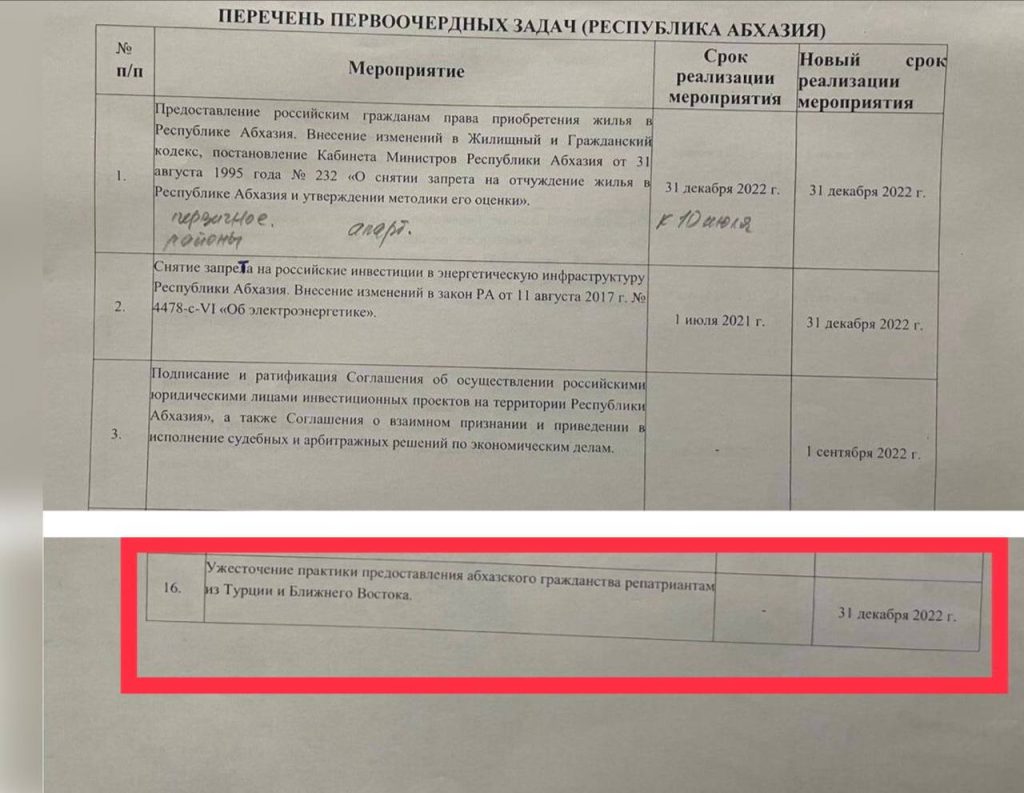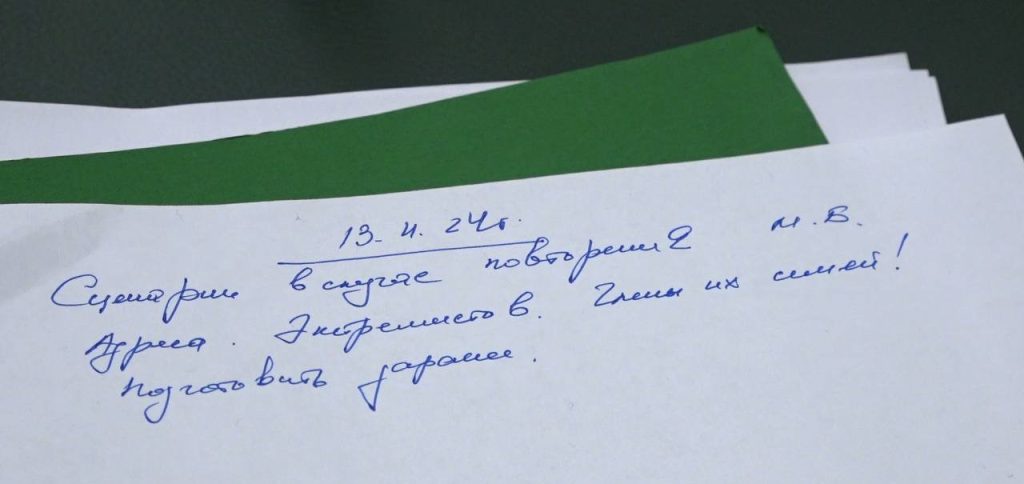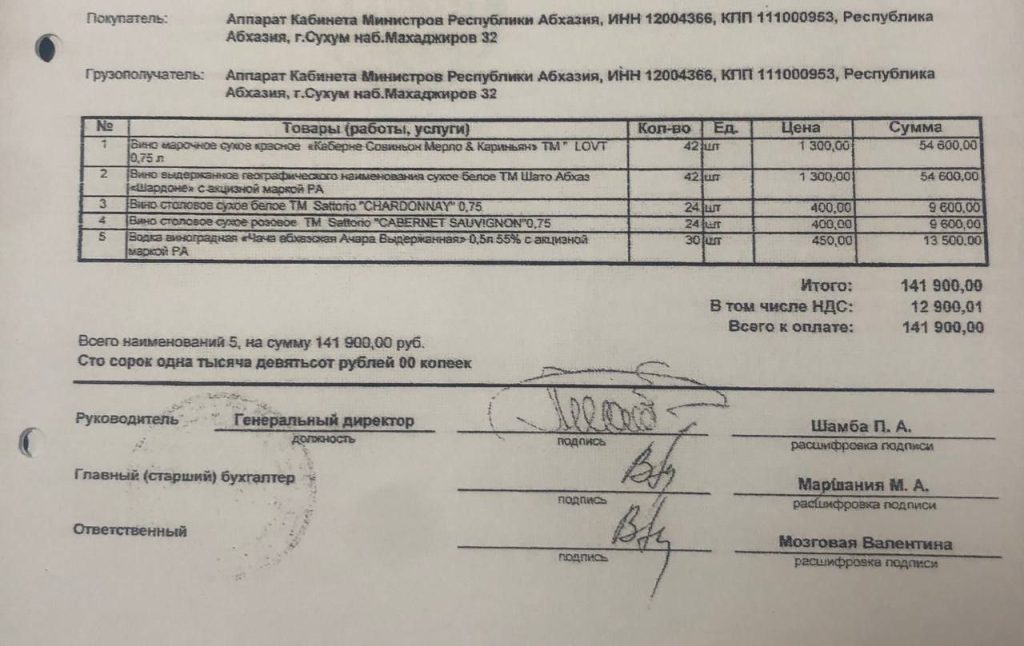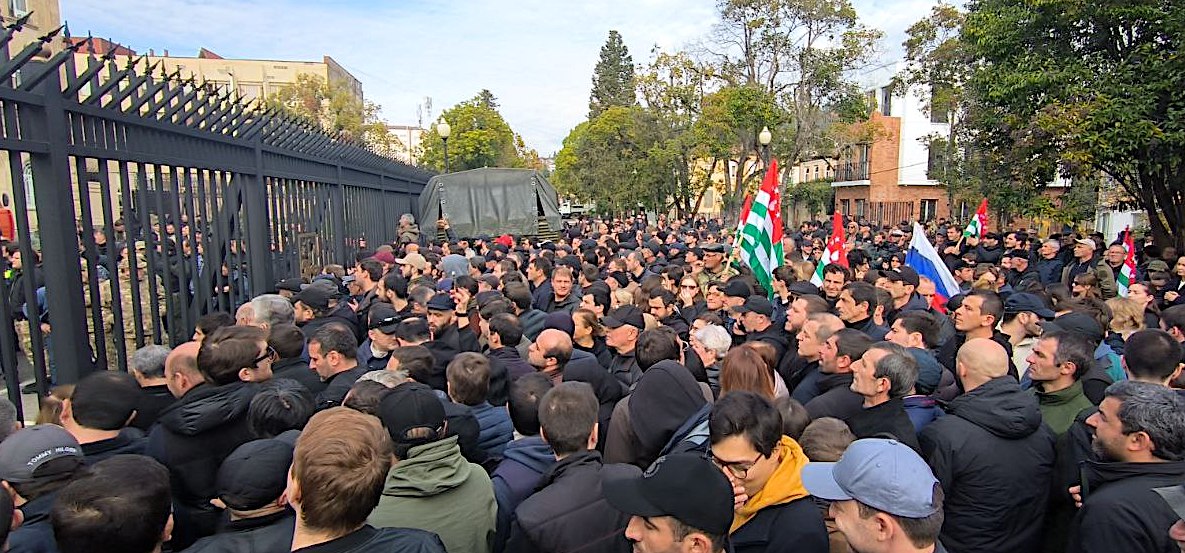Secret files: Documents recovered during Abkhazia government raid under review
Abkhaz president’s documents leaked
On November 15, a crowd protesting the ratification of the Russian-Abkhazian investment agreement stormed the government complex in Abkhazia, targeting the Cabinet of Ministers and the office of President Aslan Bzhania who was dismissed just a few days later.
Such raids have become almost routine for Abkhazia, with similar events occurring in 2004, 2014, and 2020. However, this time, the protesters seized documents, letters, notes, notebooks, and even hard drives from officials’ offices. It appears the opposition is searching for incriminating evidence against Aslan Bzhania’s government—and they seem to be finding it.
The “trophy” documents began surfacing on social media on the very first day of the raid.
A ledger documenting cash payments in envelopes to members of the pro-government party “Amsakhara.” Decrees authorizing the distribution of weapons. A list of priority tasks dictated by the Kremlin for Abkhazia to implement. A letter from Aslan Bzhania to Russian President Vladimir Putin requesting official car sirens for his travel in Moscow.
These and numerous other documents are now being carefully examined by opposition-aligned legal experts. According to them, some of these materials could provide grounds for initiating criminal proceedings against Bzhania’s administration.
Eyewitnesses recount that, before vacating her office during the government complex raid, Deputy Prime Minister and Economy Minister Kristina Ozgan prioritized removing boxes of documents. Significantly, most Abkhaz-Russian projects had been managed through her office.
- Abkhazia urged to implement urgent reforms ahead of presidential election
- Coalition government, reforms, then presidential elections — a solution for Abkhazia’s political deadlock?
According to opposition representatives, they managed to recover most of the documents themselves.
An eyewitness to the raid noted that when protesters first entered the buildings, some focused on seizing valuables—medals, coins, and even weapons. However, the organizers acted swiftly, ordering the items to be hidden to prevent looting.
Following Bzhania’s dismissal, all the valuables were reportedly returned to their offices. The documents and personal records, however, were not.
Broken promises
A document titled List of Priority Tasks (Republic of Abkhazia), effectively outlining Bzhania’s commitments to the Kremlin, contains several key points—all of which remain unfulfilled due to resistance from the opposition and civil society.
The first item proposed granting Russians the right to purchase property in Abkhazia, a measure intended to be implemented by December 31, 2022.
By the same deadline, the Abkhazian side was expected to lift restrictions on Russian investments in the energy sector.
The signing of the contentious investment agreement—which ultimately triggered the end of Aslan Bzhania’s administration—was initially planned for September 2022.
The list also included tightening the process for granting Abkhazian citizenship to repatriates from Turkey and the Middle East. The failure to act on this point has likely fueled recent allegations of Turkish influence in Abkhazia, widely spread through anonymous Telegram channels and Facebook accounts.

Mysterious acronym
A handwritten note dated April 13, 2024, was found on Aslan Bzhania’s desk. It read:
“Scenarios in case of M.V. recurrence. Addresses of extremists. Family members! Prepare in advance.”
The exact meaning of “M.V.” remains a mystery. Theories range from “May Invasion” and “Youth Uprising” to “International Influence.”
“What’s significant isn’t the abbreviation itself, but how the president was preparing for such a scenario. He was ready to arrest or intimidate the relatives of his opponents,” one of the raid participants remarked.

Banquet for ministers, siren for president
What drew particular outrage were leaked receipts for a banquet reportedly hosted by the Cabinet of Ministers in May this year. Appetizers alone cost over 72,000 rubles [approximately $690], while alcohol purchases totaled 142,000 rubles [approx $1,365]. These are substantial sums by any measure, and by Abkhazian standards, they are exorbitant.
Social media users also focused on a letter from Bzhania to Putin, in which he requested permission to use a siren-equipped vehicle for travel in Moscow.
“Is he the president of Abkhazia or just another Russian bureaucrat?” people wondered incredulously.

Details about the president’s information centre were also leaked online, including the staff structure, salaries, and fees paid to experts periodically hired to comment on various events.
The documents reveal that operating the information center costs 5 million rubles per month [approx $48,000]. The head of the center reportedly earns 120,000 rubles per month [around $1,153], the editor 100,000 rubles [approx $961], and a correspondent 40,000 rubles [roughly $384]—more than double the salary of correspondents at the state-run television channel. Employees of the information center have neither confirmed nor officially denied the authenticity of these documents, leaving the figures open to speculation.
Legal experts caution that publishing all the recovered documents is not only unnecessary but could also lead to serious consequences, as many are genuinely classified. They emphasize, however, that each document must be carefully examined and assessed from a legal standpoint.
Terms, place names, opinions and ideas suggested by the author of the publication are their own and do not necessarily coincide with the opinions and ideas of JAMnews or its individual employees. JAMnews reserves the right to remove comments on posts that are deemed offensive, threatening, violent or otherwise ethically unacceptable.
Abkhaz president’s documents leaked



















